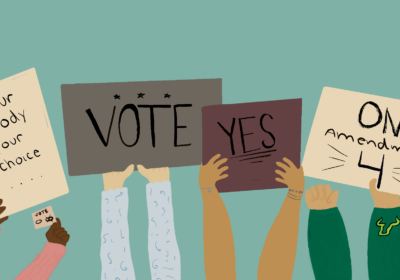Employer birth control coverage is not an attack on religious freedom
President Barack Obama’s administration has received criticism about its decision to require companies and organizations to cover birth control under employee insurance. Obama’s compromiseFriday tomake insurers rather than employers provide birth control has failed to silence complaints from religious groups.
Catholic bishops throughout the U.S. have already taken a stance against other issues they view as violations of religious freedom such as gay marriage. Their eagerness to take on the role as head of the campaign against employer birth control coverage is not a surprise.
In a video uploaded online, Archbishop Timothy M. Dolan articulated his view of the matter.
“Never before has the federal government forced individuals and organizations to go out into the marketplace and buy a product that violates their conscience,” Dolan said. “This shouldn’t happen in a land where free exercise of religion ranks first in the Bill of Rights.”
The First Amendment protects freedom of religious practice, but it also grants to freedom to abstain from religious practice. Just because the use of birth control is a controversial religious issue does not mean that access should be limited to individuals who have the right to choose whether or not they want to use it.
Giving women the right to employer coverage of birth control does not “force individuals” to personally purchase or use contraceptives; therefore, it does not impede on their First Amendment right.
Mitt Romney has openly criticized Obama as well, claiming this push for coverage is “an assault on the conviction and the religious beliefs of members of our society.”
Romney, who actually required Massachusetts hospitals – including religiously affiliated ones – to offer free emergency contraceptives to rape victims in Dec. 2005, has also made incorrect comments about such contraceptives. He called the popular emergency birth control pill Plan B an “abortion pill” either in error or in an effort to further incense pro-life voters.
Plan B prevents conception one to three days after unprotected sex – it does not terminate an existing pregnancy if the egg has already been fertilized. Many may have misconceptions about how Plan B works because of public comments such as these. *
Denying this access to women who work in religiously affiliated institutions would also deny them equality with those who work elsewhere and receive such coverage.
Religious institutions are exempt from contraceptive coverage. The issue actually surrounds nonprofit institutions that are religiously affiliated, such as hospitals and universities. Despite this, the “conviction and the religious beliefs of members of our society” are not being threatened. Again, those opposed to contraceptives would not be required to use them, so no threat to individual liberty is made.
Birth control coverage grants an advantage to low-income women who may not otherwise be able to afford it. A medical treatment or prescription may be controversial from a religious standpoint, but that does not make it acceptable for individuals to be denied equal access.
The exemption granted to religious institutions is leeway enough for those claiming the coverage is an attack on religious freedom. Though it may go against the ideas of those in charge of religiously affiliated institutions, they should not be granted the right to deny their employees access to medical treatment and preventative measures that they would receive under another employer according to the law.
Erika Johnson is a sophomore majoring in architecture.
* The effects of Plan B on implantation of a fertilized egg are currently unclear. For more information, go to http://www.planbonestep.com/.






